Convenience store chains now features a line of Muji products.
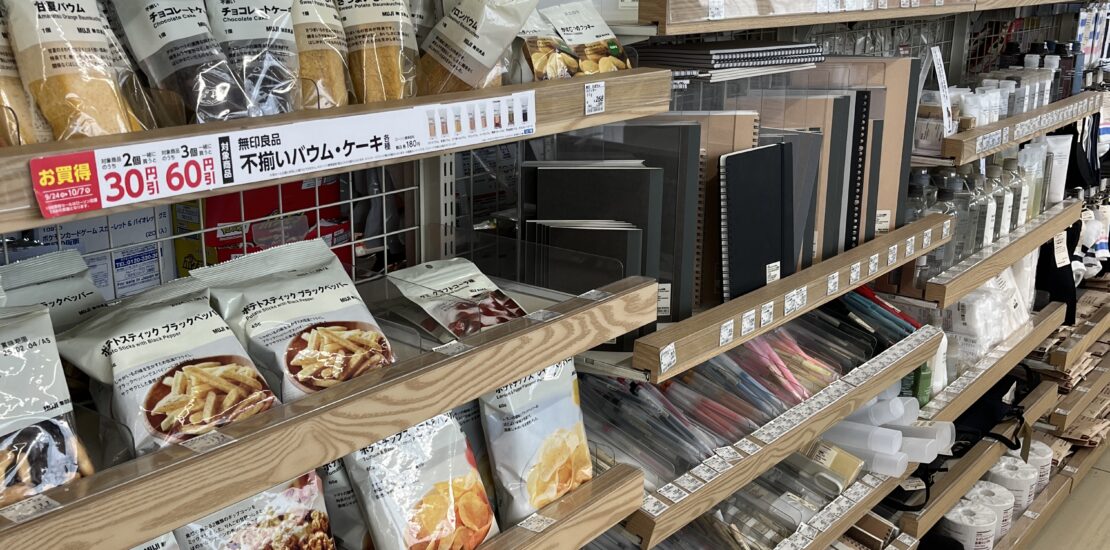
Muji and convenience stores are two things you may not expect to here in the same sentence. You may love the Muji design, a passion shared by millions of Japanese and people around the world. There are diehard fans who would rather be seen in a sack than anything but Muji clothes. The Muji followers were the first hardcore group of retail store fans in Japan followed by Costco and IKEA diehards, who want nothing more than to live in the store. The Muji fans, however, already do. By bringing the store home with them.
Apart from the clothes, Muji’s design permeates their entire product range. Even the food is designed to be simple, expressive, and anchored in the Japanese design philosophy of Kanketsu. This means achieving simplicity of function through complex processes, just like a piece of furniture is comfortable even though manufacture takes time; and a piece of Baumkuchen can be delicious after a long and arduous baking process. The design is not just an end result — but the product is the result of a process, and by controlling the process, you control the result. Even if the goods are made in China, the quality control is Japanese, and there are no shoddy Muji goods (unlike the beginning of the brand, when no brand meant no guarantee). Muji is, however, traditionally tight-lipped about the manufacturers it uses.
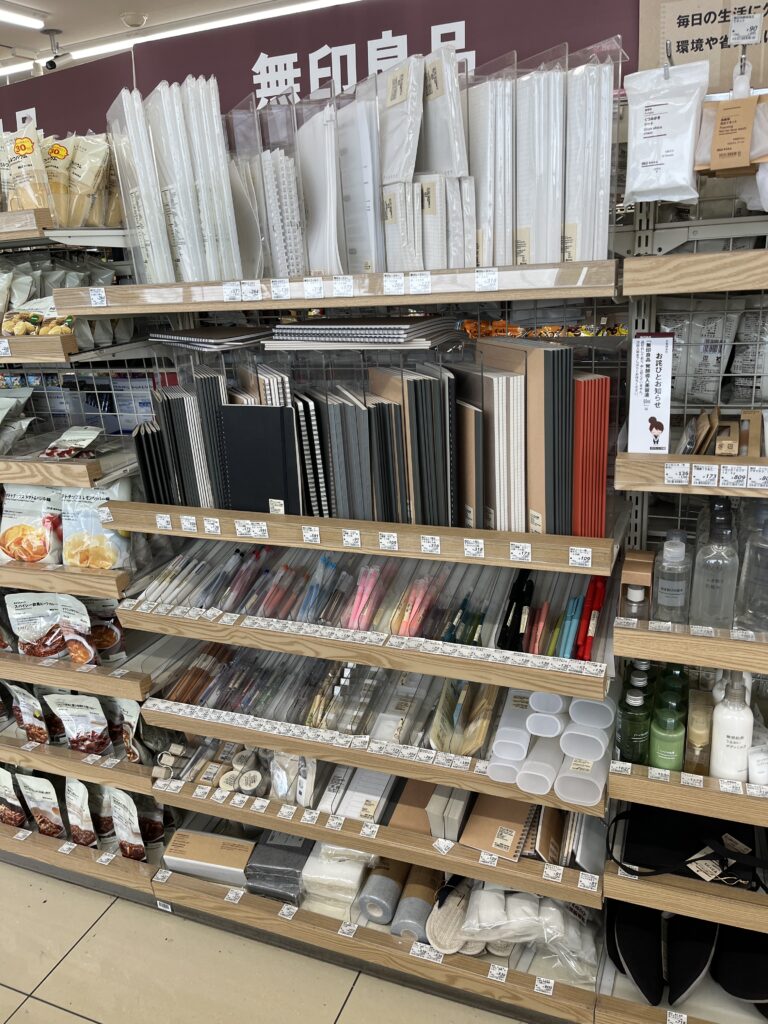
Muji goods are designed to simply feel good to use, whether it is a Muji pencil, a Muji storage drawer, or a pair of Muji slippers. The design is instantly recognizable — there is no need for a brand, just as the name says. They are also designed to be easy to manufacture, keeping costs down and quality up. And not only that, the Muji products are by design things that can take wear for many years before looking bad.
Muji has gradually expanded its stores, so there are very few if any small stores left. Most stores today have a full assortment spanning everything from Muji clothes to Muji beds, Muji storage and Muji Baumkuchen. But the Muji houses and Muji car (which is no longer sold), along with other specialized goods, are only available in some selected stores (usually the largest).
You typically find Muji stores in big shopping centers and the suburban malls that have sprung up all over the outer extended Tokyo area. In central Tokyo and Osaka, they have taken up prestigious central locations. Many of the big stores feature Muji cafes and restaurants.
Growing Availability Without Growing Outlets
But as demand has grown, so has the need for outlets. Instead of taking the same route as Uniqlo and organizing small pop-up stores in railway stations and other locations where you could hardly believe a retail outlet to exist, Muji found a way to extend its network. And more importantly, without diluting their brand by selling the goods in any department store. To do this, Muji decided to partner up.
Partner ventures are nothing new in Japan. The most famous is perhaps the Bic Camera — Uniqlo collaboration store Biqclo, which closed in 2022 since the two companies found that clothes do not make customers buy more electronics or the other way around. Now, the store is Bic Camera only. And 7–11, which runs convenience stores all across Japan, has a cooperation agreement with 100-yen-chain Daiso, selling a selection of their goods — although far from every store has them.
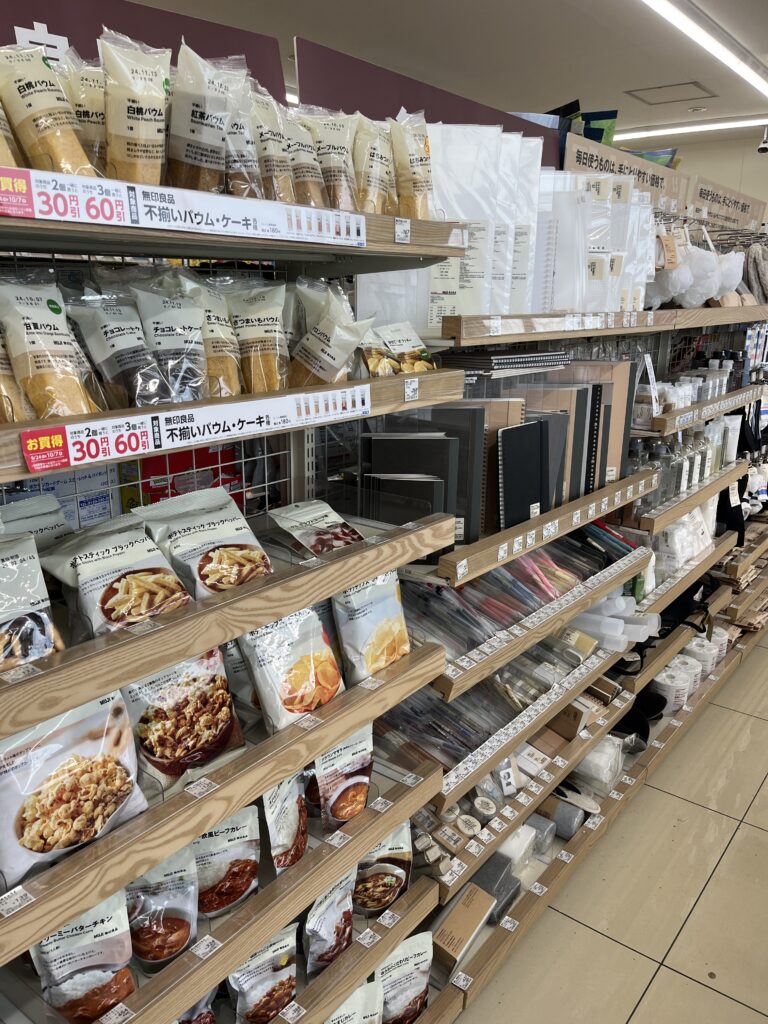
So how do you avoid falling into the same trap if you are one of the most famous brands (or rather, un-brands) in Japan? You go somewhere people need your products, preferably outside of normal business hours, so the outlets do not compete with the stores you have. Even if everything in the stores is available through the online catalog, the customers can get it immediately. And you do not offer everything in your own stores, just things that will be immediately useful and do not require trying out (or on).
This is what Muji does in Lawson convenience stores. You can find Muji products where other stores have their utility goods shelves. There are not just a few Muji products, either. You could both feed and clothe your family from the Muji shelves in Lawson and give your children something to do their homework with, too.
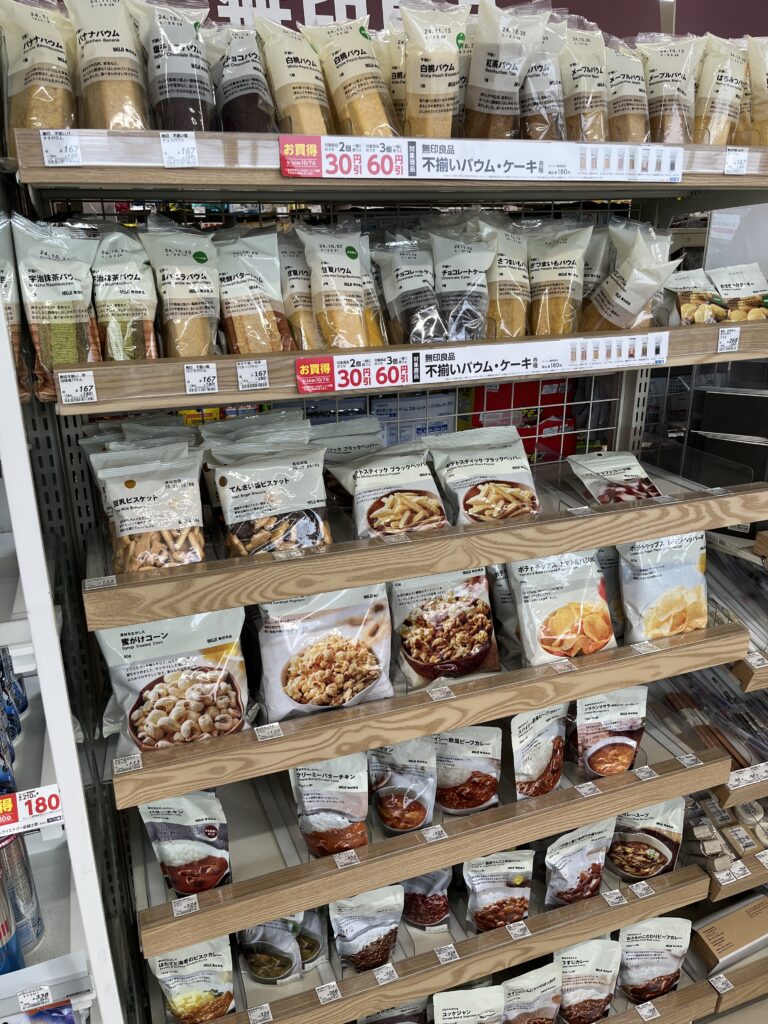
Muji stores have a lot of different products, but the food has been taking an increasingly large proportion in the stores over recent years. Not only is it healthy, it is easy to cook (just pop it in the microwave, or drop the retort pouch in hot water). Lawson features a comprehensive collection of the best of Muji food, which is not simple since their dishes are frequently in the top 10 in Japanese food competitions on TV and online. The food selection is evenly split between everyday foods (often on the adventurous side for many Japanese, like Thai and Indian-style curries), and snacks that a convenience store would never consider, like baumkuchen in various flavors).
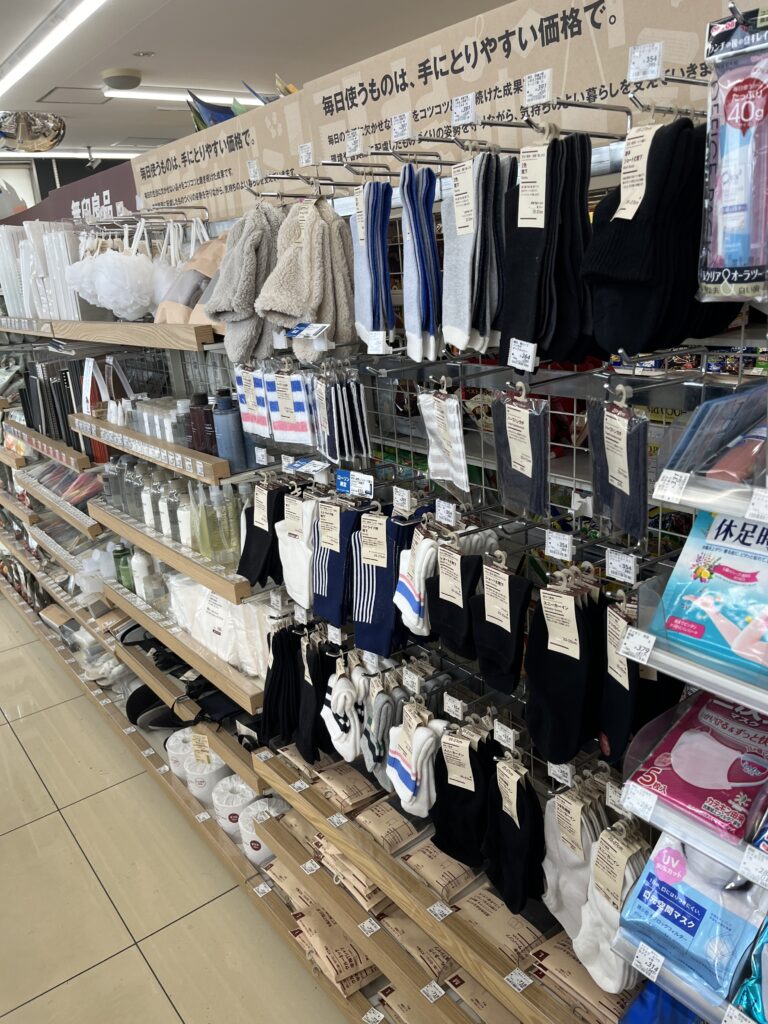
There is a small selection of clothes, and other everyday necessities. If you need socks, a cap, or underwear, this us where you should go. All convenience stores sell some brand name products (the most common is Imabari towels, which are appreciated in the hot summer for their high absorption capacity). Take a look at the name of the maker next time you buy a facial towel in s convenience store, it is likely to be far more fancy than you expected.
Miscellaneous Muji Products
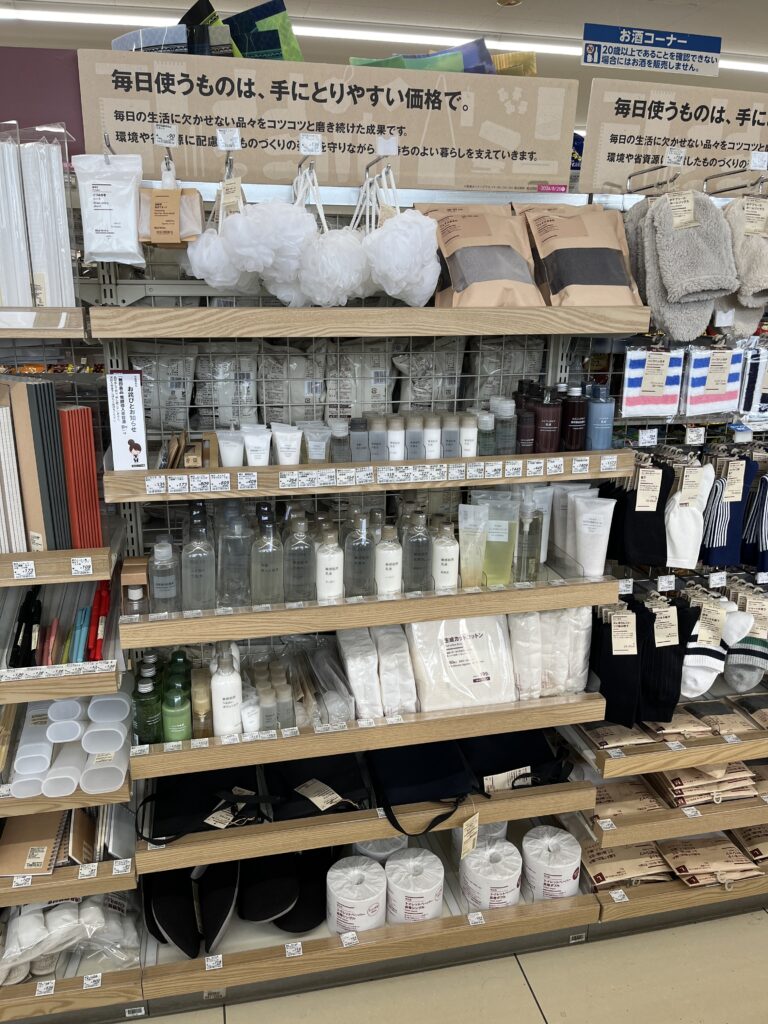
Hygiene products also come high on the list of Muji products in Lawson stores, including everything from sponges to toilet paper. Beauty product users love the Muji products for their cost-performance, and the combination of high quality, large volume, and low price is very hard for competitors to beat.
While Muji offers a variety of everyday products, from snacks to stationery, Japan is also home to many affordable beauty brands. If you’re looking for budget-friendly makeup options, check out our guide to Japanese makeup brands to discover the best products available.
But the bulk of the Muji products in Lawson stores is writing utensils and related paper goods. The Muji notebooks are legendary for their simple durability and quality paper, and there are pens to make them easy to use, and erasers and pencil sharpeners to go with the pens, as well as highlight markers, permanent ink pens, folders and binders that make the writing (or drawing) results easier to keep.
Discover the convenience of Muji products now available at Lawson stores across Japan. From food and stationery to everyday essentials, experience Muji’s minimalist design right at your local convenience store.
Stay tuned for more exciting content about living in Japan! Follow us on our social media platforms and check out our blog regularly to stay updated on the latest news, trends, and insider stories from Japan. Don’t miss out on future updates—sign up for our newsletter for exclusive content delivered straight to your inbox!



